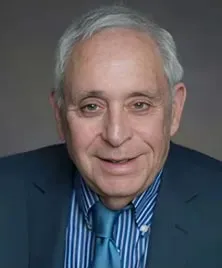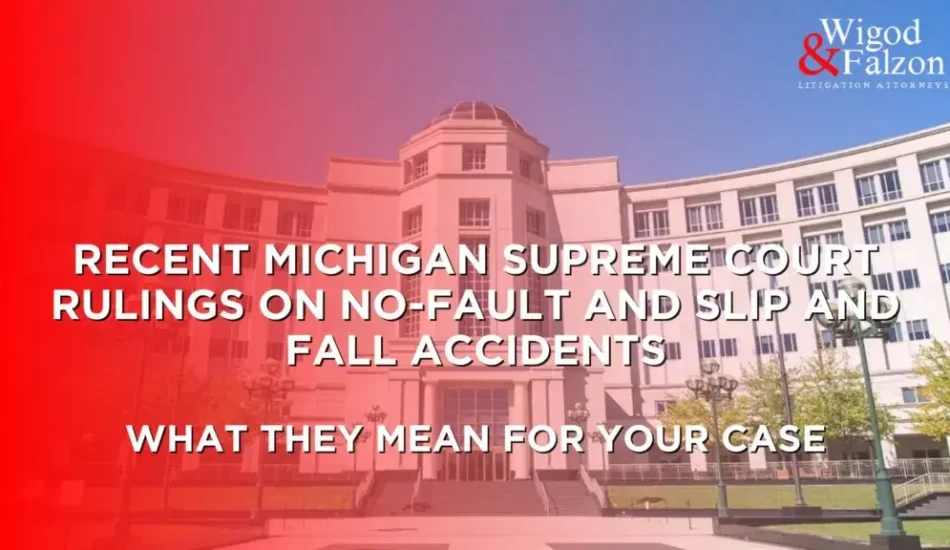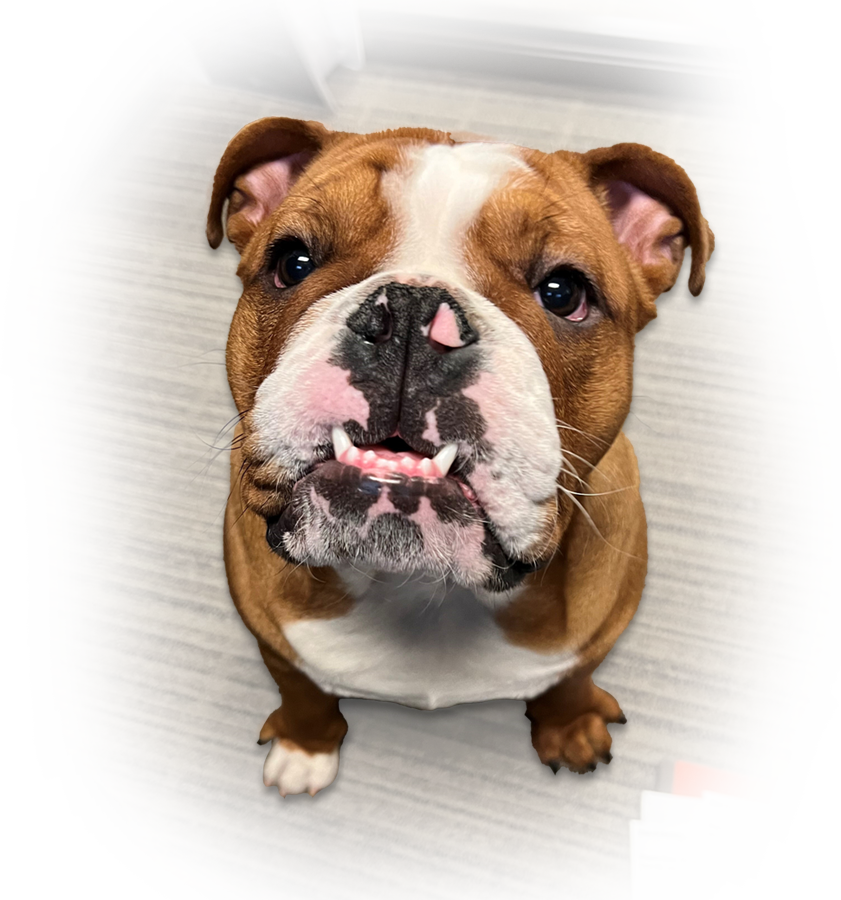|
|
Last Modified on Nov 29, 2024
Are you aware of the recent Michigan Supreme Court decisions regarding both no-fault and slip and fall law?
We highly encourage you to continue reading to understand these new developments, as they may affect you or a loved one.
Earlier this week, the Michigan Supreme Court ruled that more than 15,000 Michigan drivers critically injured before 2019’s no-fault law changes are entitled to the same kind of coverage they had before the law took effect.
But that’s not all—additionally, the Michigan Supreme Court issued an opinion that has effectively abolished the Open and Obvious Danger Doctrine in Michigan. Therefore, ruling in favor of slip and fall accident victims.
Keep reading to learn more about these landmark decisions, how they affect personal injury victims, and how you or someone you love can possibly receive further compensation.
History of Michigan’s No-Fault Law
Those who have been injured in an automobile accident are legally entitled to collect No-Fault benefits under the Personal Injury Protection (PIP) coverage of their auto insurance policy.
If you’re involved in an auto accident, no-fault insurance pays for a variety of benefits, and the damage you do to other people’s property, regardless of who caused the accident.
These benefits provide these valuable protections to assist in recovery:
- Medical care expenses
- Medical mileage
- Wage loss
- Replacement services
- Attendant care
- Home modifications
- Vehicle modifications
Michigan drivers have the choice of one of the following:
- Unlimited PIP coverage
- PIP coverage limited to $500,000
- PIP coverage limited to $250,000
- PIP coverage limited to $250,000 with certain medical exclusions (if you qualify)
- PIP coverage limited to $50,000 (if you qualify)
- Opting out of PIP coverage completely (if you qualify)
Simply put; the less coverage a victim has, the more the claims process can affect their financial wellbeing. Therefore, having limited coverage will change the claim process for accident victims who endured serious injuries.
When Michigan amended the no-fault act in 2019, the new law included limits to family-provided attendant care reimbursement and established a fee schedule capping reimbursement for non-Medicare compensable services.
New Michigan Supreme Court Decision on No-Fault Law
On July 21, 2023, the Supreme Court ruled in a 5-2 decision that car crash victims critically injured before changes to Michigan’s auto no-fault insurance law took effect are not subject to the law’s limits on medical benefits.
This means that individuals injured prior to the implementation of the 2019 auto no-fault law are entitled to receive their full benefits. It’s a significant win for about 18,000 Michiganders, notably including former Detroit Red Wings star Vladimir Konstantinov.
Previously, the change in Auto No-Fault applied retroactively to Michiganders who already relied on care. Providers were capped at 55% of what they charged previously, which created a significant financial strain.
What Does This Mean for Auto Accident Victims?
This decision is considered a remarkable victory for tens of thousands of Michigan auto accident victims with severe and long-term injuries, who have been fighting the changes to medical fees that have interrupted their access to high-quality care.
In addition, medical providers treating personal injury claimants would have been subject to new fee schedules. These schedules aim to bring charges for care similar to what is paid to patients with private health insurance or covered through workers’ compensation.
History of Michigan’s Open and Obvious Danger Doctrine
Whether you rent out an apartment, manage an office building, run a shop, or own any other type of public property, you may be held responsible for injuries that occur on your property. This is where the Open and Obvious Danger Doctrine comes into play.
This doctrine states that if a safety hazard would have been open and obvious to a reasonable person, then the landowner is not liable (or may be less liable) for failing to eliminate the hazard or warn the person who was injured on their property.
The idea behind this doctrine is that visitors should recognize warning signs of obvious dangers and aim to protect themselves.
New Michigan Supreme Court Decision on Slip and Fall Law
However, the Michigan Supreme Court recently ruled that the Open and Obvious Danger Doctrine, which previously shielded property owners from liability, does not automatically apply to cases involving a hazardous condition that may be open and obvious.
Under the new law, a landowner owes a duty to practice reasonable care to protect invitees from harm caused by a dangerous condition on the land—even if it is “open and obvious.”
A premises plaintiff is still required to establish the four elements of a negligent claim:
Whether a defendant owes a duty to the plaintiff is a question of law for the court. However, the open and obvious nature of a safety condition can be decided by a jury.
What Does This Mean for Accident Victims?
As of now, this decision will apply retroactively to all pending cases. The effect of this Michigan slip and fall law is that the court will throw our fewer cases of premise liability, like slip and falls, will be thrown out by the court citing the open and obvious rule.
This means there may be more settlements and trials in these cases. It’s also likely that there will be more cases filed, since this defense no longer bars a case from reaching a jury—especially in slip-and-fall cases involving snowy or icy conditions.
Previously, when we received calls about slip and fall injuries, we urged our clients to hold off on filing a lawsuit; as we knew these changes were coming and wanted to grant them the best chance at winning as possible. Now, both us (and the law) are ready to do something about it.
Here’s How Our Team Can Help
These new changes may sound overwhelming. That’s where a knowledgeable attorney can help you navigate it all. The attorneys at Wigod & Falzon are well-versed in all these new changes and are prepared to assist any victims who may be affected by these changes.
A dedicated attorney team and support staff will handle every aspect of your case—from gathering evidence and negotiating with insurance companies to representing you in court, if necessary. You can count on us to be responsive and available to answer any questions or concerns you may have throughout the process.
Contact Wigod & Falzon; We’ll Keep You Up to Date With Law Changes
Rest assured that when you work with us, we’ll keep you updated on any law changes; so that you’re always in the know.
We understand that law developments can be confusing, or even scary. That’s why our attorneys practice patience and compassion during any and all cases.
Contact us today for a free case consultation! We work on a contingency fee basis, which means no recovery = no fee.





